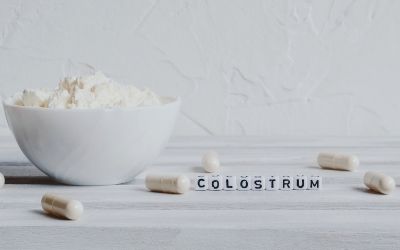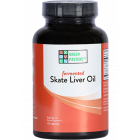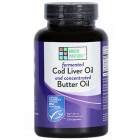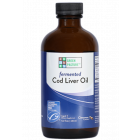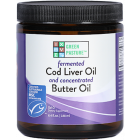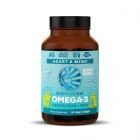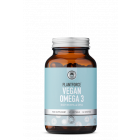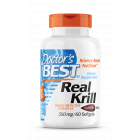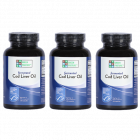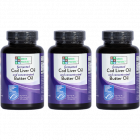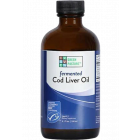Algae oil vs. Fish oil - What's the difference?
- By Bea Recuerdo (BSc)
- 7 Jun 2022


Omega-3 oil is one of the nutrient supplements that has been growing popularly in the market. Throughout the years, it has been sought after by many because of its health benefits. And while the need for omega-3 oil supplements grows, so are the possible sources of this nutrient. The fish oil used to be the only source for Omega-3, and for some people, this may be the only source of Omega-3 that they know. But, as the demand increased and specific diets restricted fish-sourced omega-3, researchers suggested an alternative source for the nutrient, Algal oil.
What to expect in this article
In this article, we will be looking into the history between the sources and compare them based on the Sustainability, Taste & Odor, and Nutrient Composition and help you decide which Omega-3 oil source is for you.
How the Industry Started

Fish Oil
Omega-3 oil may seem like a modern invention, but actually, it has been used long before our time. Dr. Michael Crawford suggested that one of the contributing factors behind ape evolution to man is Omega -3 fatty acids. The increased intake of seafood from ocean fishing contributed to the brain development of early humans because of docosahexaenoic acid (DHA) (Source: PEMSEA).
While in the 8th century, it was studied that Ancient Romans liked to add fish-oil-based sauces to their food. It was named Garum sauce. These sauces had an undesirable smell, but they were favored by the Romans. Even the most inferior member of society used it in their food. They loved fish oil not only for its taste but for its health benefits as well. Garum, when studied, showed to be the world's first fish oil supplement containing both Eicosapentaenoic acid (EPA) and docosahexaenoic acid (DHA) (Source: ResearchGate).
And as centuries passed, it was not just fish oil that was regarded as essential but specifically the nutrient found in Omega-3 fatty acids: Eicosapentaenoic acid (EPA) and docosahexaenoic acid (DHA). Studies show that omega-3 oils can help improve heart health, brain function, help in infant development, and contain anti-inflammatory properties. (Source: NIH) And since the human body is not able to synthesize these fatty acids on its own, there is a need to get Omega-3 from the diet or through supplementation (Source: NCBI).

Algae Oil
However, when the market increased the demand for these supplements, researchers searched for other sources, which led researchers to Algal Oil. Algal oil is sourced from marine algae that are widely dispersed around the world. And since it is made from plants, it is regarded by many vegans.
As microalgae were studied further, it was shown that it is the primary producer of EPA and DHA, contributing to the omega-3 oil in fishes and other sea life. It is part of the food web of aquatic creatures. It is mainly food to small marine animals like shrimps, early larvae of crustaceans, fish, and mollusks (Source: Springer).
When studied even more, algal oil was found to be more advantageous compared to fish oil in terms of sensory properties (taste & odor) and production and sustainability. Let's dig a little deeper into this.

Algae Oil vs. Fish Oil - Production & Sustainability
One of the reasons for the use of Microalgae as a source of omega-3 supplementation is that fish oil has increased the demand and contributed to the decrease of some fish species (Source: TFNC). The production of fish oil has reached the optimal threshold and is declining throughout the world. This has caused the price to increase, which made fish oil costly. In studies, fish oil may not be afforded by the majority of individuals in developing countries (Source: ScienceDirect). In this view, there is a need to look for sustainable and safe sources of omega-3 DHA. Algal oil production is more accessible and more environmentally friendly, giving higher yields than fish oil production.
Algae Oil vs. Fish Oil - Taste & Odor
One of the main advantages of microalgae over fish oils is the lack of unpleasant odor. (Source: ScienceDirect) Algal oils do not possess scents, in contrast with the fish odor, which accompanies fish oils, limiting its use (Source: ScienceDirect). And as compared to fish oils, algal oils have a neutral taste. Because of these reasons, algal oils quickly gained general acceptability in the market. Nevertheless, a few fish oil brands have produced Omega-3 supplementation with a neutral taste and smell.

Algae Oil vs. Fish Oil - Quality
The processing can affect the quality of Omega-3 fatty acids. According to research, fish oils from processed fish oils, refined triglycerides, or those with ethyl esters are not well-absorbed by the body compared to conventional fish oils. Furthermore, we must be careful in choosing fish oil brands for these reasons:
- Some brands have been reported to contain heavy metals, antibiotics, and other contaminants that may pose a serious safety concern to consumers.
- Some fish oils contain environmental pollutants such as dichlorodiphenyltrichloroethane (DDT), dioxins, and polychlorinated biphenyls that have been found in fish oil.
This is why most discourage the use of fish oil. (Source: ScienceDirect) In terms of Algal oils, it has been deemed safe in industry, same bioavailability as Omega-3 fish oils, and has even been used by infant formula brands as their source of DHA & EPA. (Source: ScienceDirect) Microalgae, the source of algal oils, are particularly interesting as a source of nutraceuticals because algae can produce a number of biomolecules with bioactive properties, such as beta carotene, lutein, astaxanthin, chlorophyll, phycobiliprotein, and polyunsaturated fatty acids, which are helpful for human and animal health and development (Source: ScienceDirect).
Bottomline Algae Oil vs. Fish Oil
Fish oils are a good source of Omega-3 fatty acids, specifically, Eicosapentaenoic acid (EPA) and docosahexaenoic acid (DHA). But with the growth of biomarine technology, algal oils have been seen as advantageous in terms of sustainability, sensory properties, and quality of Omega-3 oil supplementation.
Fish oils are still a good option, but for Vegans, or those who are opting for a more environmental product, algal oils can be a better option as a supplement.


